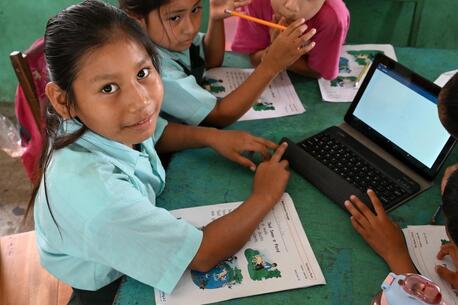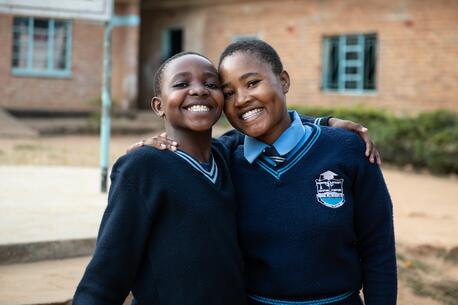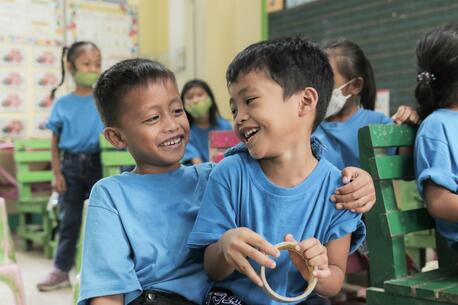
Children's Right to Online Safety Must Be Protected
The bipartisan Kids Online Safety Act (KOSA) aims to protect children from the harms of social media and ensure digital platforms contribute positively to their well-being.
Children are spending more time on the internet than ever before
Every half second, somewhere in the world, a child goes online for the first time. Parents and lawmakers are still learning how to navigate this new reality. The internet grants young people access to a broad spectrum of information, culture and entertainment, even playing a role in building connections by enabling them to be a part of communities and interact with others who share their interests and passions. Digital tools can benefit children in many ways, but dangers also exist.
Children’s mental health must be protected, even online
As children and adolescents increasingly engage in the digital world, the impact on their mental health cannot be overstated. Recent research has shown that increased internet use among adolescents can lead to heightened anxiety and a higher likelihood of developing depression. This direct correlation between digital engagement and mental health challenges emphasizes the need for safer online environments.
In response to these pressing issues, UNICEF USA advocates for robust support systems and investments in mental health services. These efforts are supported by legislative measures like the bipartisan Kids Online Safety Act (KOSA), aimed at enhancing online safety and ensuring that digital platforms contribute positively to the well-being of our youth.
On July 30, 2024, the Senate overwhelmingly passed KOSA, 91-3. We applaud the bipartisan effort to prioritize the digital safety of the most vulnerable internet users: children. This legislation represents a significant step forward in addressing the increasing challenges of the online world that affect children’s mental health and well-being.
By mandating enhanced safety measures and increasing transparency from digital platforms, KOSA could serve as a critical tool in transforming the online environment into a safer space that nurtures young minds and shields them from potential harm.
UNICEF USA will not stop advocating for children’s online protection
As this legislative effort moves forward, UNICEF USA will continue its advocacy for comprehensive and accessible mental health services for children and adolescents, ensuring that youth not only survive but thrive in an increasingly digital future.
The internet should be a safe place for children to learn, socialize and express themselves. To learn more, see UNICEF USA's resources and support for parents and caregivers.
HOW TO HELP
There are many ways to make a difference
War, famine, poverty, natural disasters — threats to the world's children keep coming. But UNICEF won't stop working to keep children healthy and safe.
UNICEF works in over 190 countries and territories — more places than any other children's organization. UNICEF has the world's largest humanitarian warehouse and, when disaster strikes, can get supplies almost anywhere within 72 hours. Constantly innovating, always advocating for a better world for children, UNICEF works to ensure that every child can grow up healthy, educated, protected and respected.
Would you like to help give all children the opportunity to reach their full potential? There are many ways to get involved.





